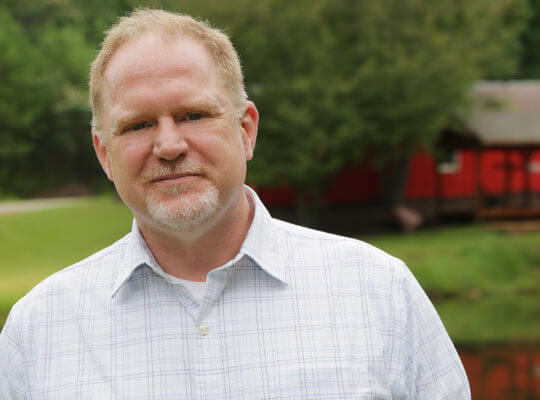Some years ago, I intercepted a teenage boy just before he ran away. I asked him why he felt a need to run. He answered, “Mr. Garry you don’t understand. I ain’t got a good family or a nice house like other people, I’m not smart like other people, I’m not good at sports … heck, I ain’t good at nothing like other people. I ain’t never gonna be nothin’ but a poor redneck from Pickens County who ain’t got nothin’ … I ain’t nothin’ so it don’t matter what I do!” At that moment I saw all the pain this young man felt as he expressed his deepest conviction, “I’m not … therefore, I ain’t.” Generations of disappointment and dysfunction had worked to form such thoughts in this teen’s mind as he compared himself to those around him. He had fallen prey to one of the Devil’s most effective schemes for our destruction, namely to get human beings to define self-worth in comparison to others. This downward digression goes something like this: “I don’t have what they have. I can’t do what they can do. I don’t look like they look. I’m not as smart as them. So, I am not as valuable.”
There is a sense in which comparison is unavoidable. The goal is to find a way to make healthy comparisons that do not define self-worth. For example, to admire the character traits of another person and find in those qualities an example worth imitating is healthy comparison. I have had mentors in my life that set a healthy pace before me and each interaction with them left me feeling as though I had just become a better person by being with them. Being with these people also left me with an awareness of how much I needed to grow. As I compared myself to these teachers and mentors I did not feel the need to define my worth by their success but was instead focused upon their worth and my gratefulness for their example. So, comparison can be healthy provided it is based upon seeing the value of another as opposed to seeing the lack of value in self.
An unhealthy comparison may also arise in the form of false pride. Comparing ourselves to those of perceived lesser value or making comparisons to the failures of others may temporarily boost self-esteem but in the end, only further erodes healthy self-worth. We should seek to be aware of how often we say or think phrases like, “At least I’m not as bad as her.” Or “He is such a loser.” Or “At least I’m prettier than her.” As a general rule if we can only feel personal value by looking at the failures and shortcomings of others then low self-esteem and low self-worth are surely present.
So, how do we find a healthy sense of self-worth in a world that is constantly tearing us down? How do we avoid the comparison trap in a society that is driven by comparison? First, face this truth: Human life is valuable, period. From the moment of conception, we are valuable. No matter how many noble things a person may accomplish in life he or she is no more valuable than when they first drew breath, before any real contribution to society. You are valuable because you are. Period. The Bible tells us that mankind was created by God who placed His Divine image within us and declared the creation to be “very good”. Second, consider the possible outcomes of unhealthy comparison. I may become puffed up and prideful when I see myself as superior to others. I may become jealous, resentful, and bitter when I see my lack in comparison to the abundance of others. In the end, an unhealthy comparison may lead me to vengeance, arrogance, despair, or isolation from others but it can NEVER lead me to a condition of healthy self-worth in which I find peace and contentment.
The experience of the runaway teen mentioned earlier is not so different from what many people face each day. Schools, homes, workplaces, churches, and sports teams are filled with those caught in the trap of unhealthy comparison that leads to the “I’m not … therefore, I ain’t worthy” type thinking. Those who embrace these two truths (Human life is valuable and unhealthy comparison is destructive) can escape the comparison trap and live free of the resulting pain. Perhaps today is the day for you to find freedom from the unhealthy comparison. Joy and peace await those who do.
Garry Barber is a Licensed Clinical Pastoral Counselor (NCCA) who holds Masters and Doctoral degrees in both biblical studies and family counseling. For nearly 3 decades he has sought to guide individuals and families to a healthier, more functional life. The Joy House Counseling Center exists for the purpose of providing a faith-based option for residents of the Highway 575/ 515 corridor who seek guidance with life’s problems. We have locations in Pickens, Gilmer, and Cherokee Counties with fees based on income and ability to pay. We offer counseling to all ages, with professional services to a wide variety of individuals, families and their needs. Contact our Counseling Center via phone at 678-452-2037 for more information.

 By:
By: